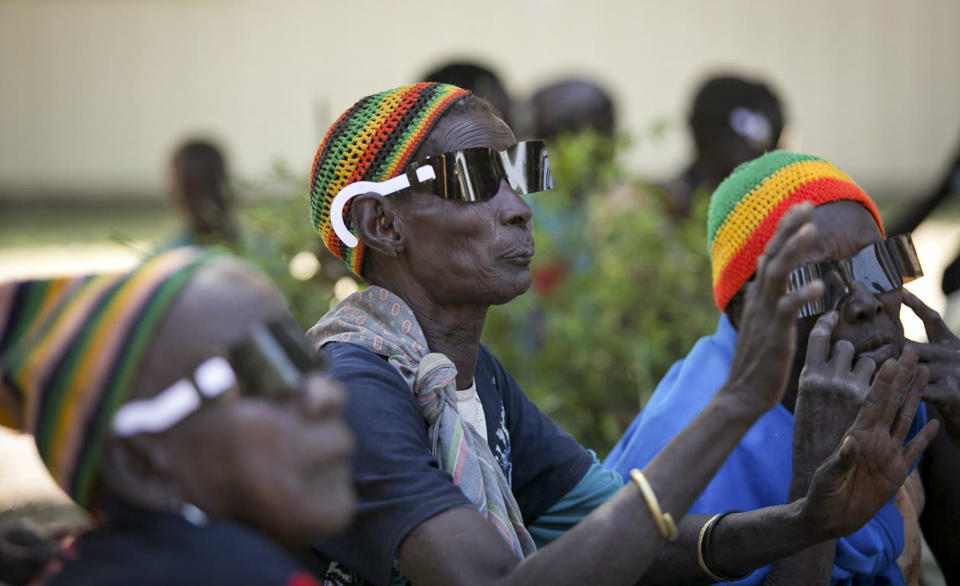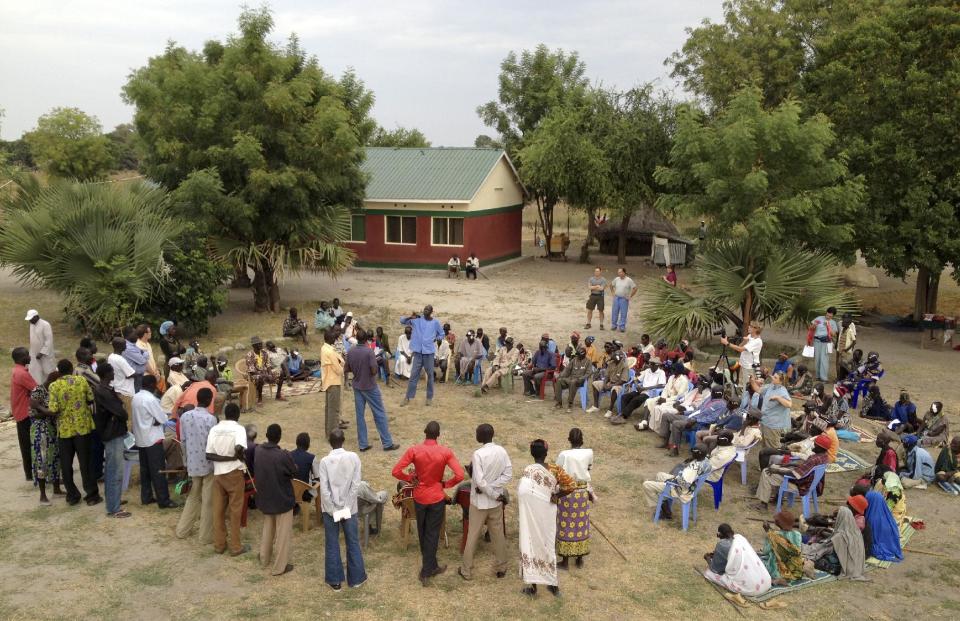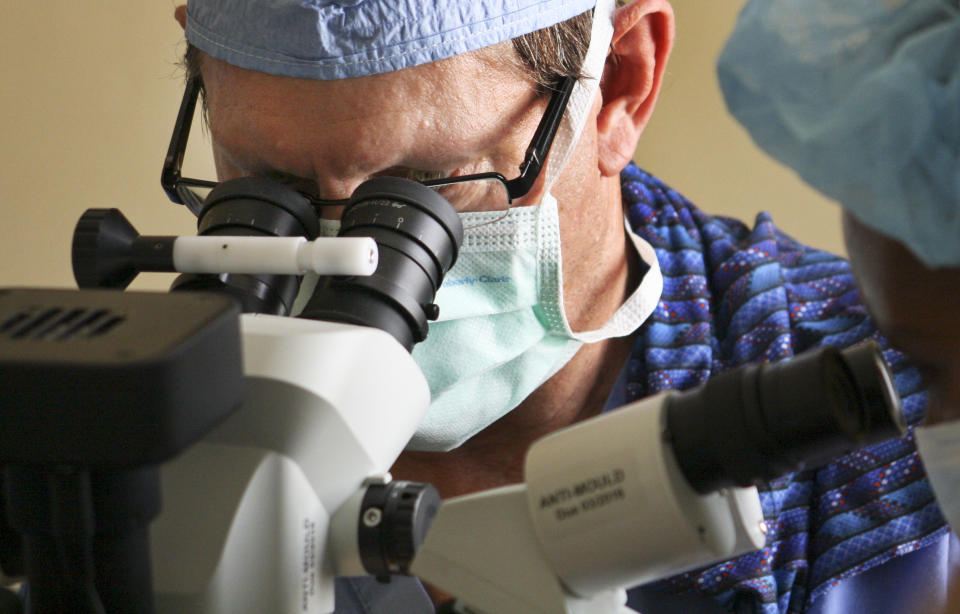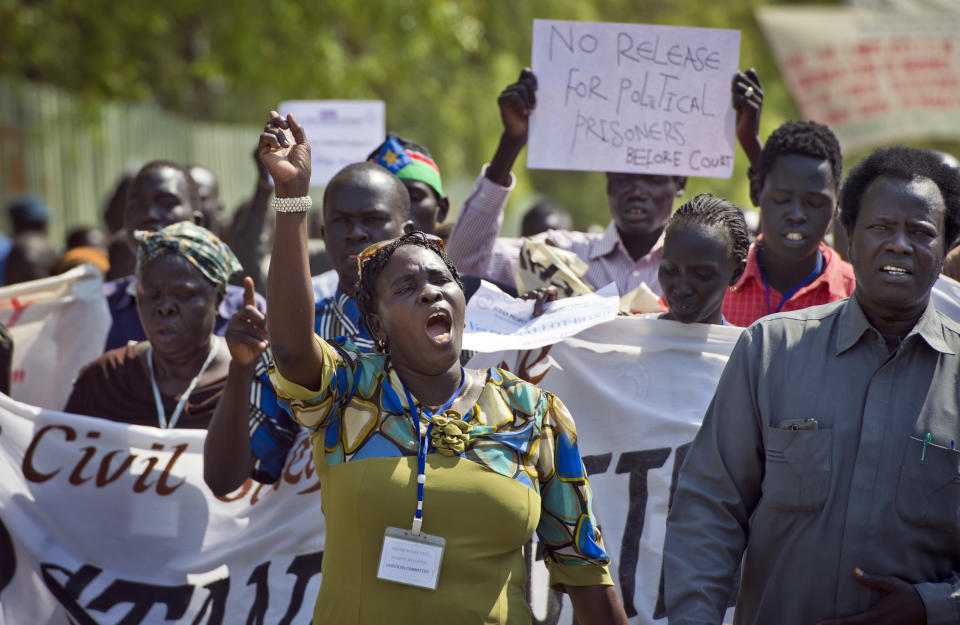S. Sudan: US doctors try to heal ethnic fractures
JUBA, South Sudan (AP) — After receiving eye surgery from the American doctors, a South Sudanese man sat with other patients who belonged to tribes he once considered enemies. The men spoke about their newly restored vision — both their eyesight and how they now perceive members of other ethnic groups as potential friends, not sworn enemies.
South Sudan's government faces monumental challenges: To bring warring factions, often from rival ethnic groups, back toward peace after violence broke out across the country on Dec. 15.
The group of American doctors had a unique approach to help heal age-old rifts between ethnic groups, but it has been put on hold because of the fighting.
A dry run they tried last year in Jonglei state, which has since become the epicenter of the clashes, was promising. They restored more than 200 patients' sight through cataract and trachoma surgery and helped break through tribal enmity.
As a condition for the free surgery, the American doctors demanded that the members of rival groups sit together and talk. Michael Yei of the Moran Eye Center at the University of Utah recalls one particular member of the Murle tribe who sat with men who belonged to the Nuer and Dinka groups. The man soon reached a conclusion that made the hearts of the medical team soar.
"I always thought in many ways that the Dinka were devils and had horns, but they're just like us," the patient said, according to Yei.
"That's the kind of response we had and were so encouraged," Yei continued. "Getting your sight back is a major and powerful motivator for people. It just changes your life."
Capt. Dhuor Andrew Makur, a 31-year-old doctor in South Sudan's military, is not surprised that misconceptions like the one held by the Murle man could exist in South Sudan. The population is poorly educated, with only a 27 percent literacy rate.
Makur studied at the London School of Hygiene & Tropical Medicine, an experience that showed him what it's like to live in an advanced society.
The West has spent hundreds of millions of dollars in South Sudan, but Makur said not enough is being directed to education and to ways in which the disparate ethnic groups can interact. There are only a couple dozen miles of paved roads in South Sudan, the world's newest country but also one of its least developed.
"The good things you want you have to press for — education. We're still wild. We come from the jungle," Makur said. "Don't bring money to our people. Bring U.S. companies. Invest in roads. Let people interact."
Four of his relatives, cousins mostly, have been killed in the outbreak of violence.
The violence, which forced the American eye surgeons to cancel a planned trip this month to Jonglei state where they intended to treat hundreds of patients, has riven South Sudan along ethnic lines. They hope to return when the violence subsides.
Ethnic frictions have long existed but were largely overlooked during the civil war with Sudan that ended with a 2005 peace agreement that set the stage for South Sudan becoming a nation in 2011. Once independence was achieved, ethnic fault lines began shining through.
A power struggle brewing for months between President Salva Kiir, a Dinka, and former Vice President Riek Machar, a Nuer who was fired in July, broke out into massive violence just over three weeks ago. The sudden violent spiral recalled a battle in 1991 that saw Machar lead a Nuer slaughter of the Dinka, said Jok Madut Jok, the co-founder of the Sudd Institute, a research body in South Sudan.
"This conflict escalated so fast partly due to the history of the liberation wars, in which South Sudanese committed atrocities against one another and no accountability for these atrocities was established when those wars ended, leaving gaping wounds in the hearts and minds of so many citizens," Jok wrote in a paper published this week.
South Sudan's biggest problem is that it is a patchwork of small ethnic groups seeking power, said Edmund Yakani, the executive director of a peace-building organization called CEPO. Potential solutions include more inter-marriage between ethnic groups, a government not dominated by ethnicity and an informed citizenry, Yakani said.
Dr. Alan Crandall, vice-chair of the department of ophthalmology at the University of Utah, remembers the members of the Dinka, Nuer and Murle tribes interacting after their cataract surgeries last year. Elderly men sat in a circle on plastic chairs, their eyes shielded from the sun by large black post-operation glasses.
During the "peace circle," Crandall heard a Nuer man say he would tell his tribe's young warriors that they should not attack other ethnic groups.
The medical group began its mission in the village of Duk Payuel in Jonglei through the efforts of John Dau, a former "Lost Boy" of Sudan who fled the 1990s conflict by walking to Ethiopia and eventually finding his way to Syracuse, New York. His foundation provides health care and medical training.
"The things I have done have nothing to do with the fact I'm a Dinka," Dau said by phone. "I succeeded because of my ability.
"We have to see ability, not tribe."
___
On the Internet:
Moran Eye Center: http://healthcare.utah.edu/moran
John Dau: http://johndaufoundation.org






